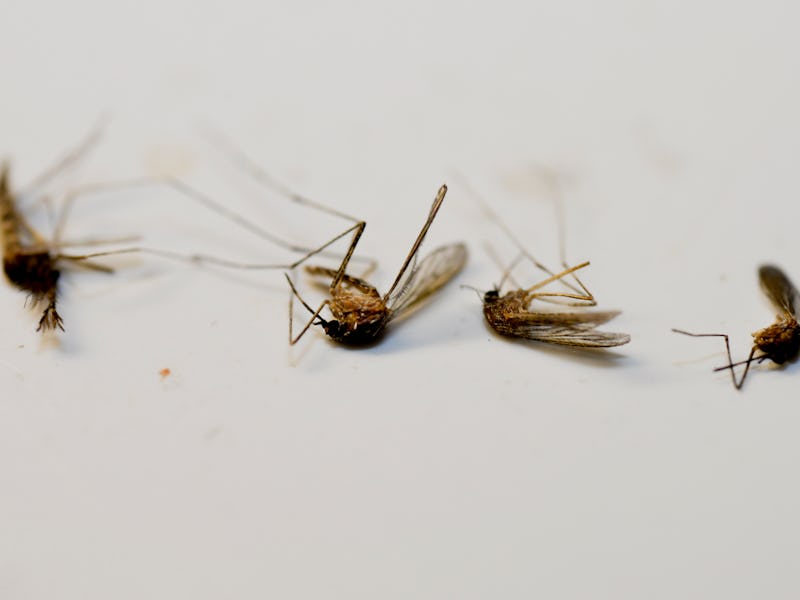These (DEET-Free) Mosquito Repellents *Actually* Work
Not necessarily untoxic, but capable of killing off pesky mosquitos.

DEET is an unpleasant but sometimes necessary part of enjoying the outdoors. It sucks, but it’s worth it if only to avoid the nastiness of a swarm of mosquitoes sucking your blood.
Science says DEET, a synthesized chemical also known as N,N-diethyl-m-toluamide, is basically safe for humans to used as a mosquito repellant. “DEET is probably one of the safer chemicals you put on your body,” Jonathan Day, a mosquito researcher at the University of Florida, tells Inverse.
But some people have adverse skin reactions, and some people just can’t stand the stuff. Whether DEET deserves its nasty reputation or not, the fact is that people are hungry for alternatives. Alternatives do exist, and they work — just not always as well or for as long.
Day recommends sticking to the three chemical repellents approved by the Centers for Disease Control: DEET, picaridin, and oil of lemon eucalyptus, which has an active ingredient called PMD, or p-menthane 3,8-diol.
People like oil of lemon eucalyptus and other botanical repellents because they come from plants, but natural doesn’t necessarily mean less toxic. “Toxicity is a real relative term, and I think the general consumer belief is that if it’s a botanical, and it contains an essential oil from a plant, then it’s non-toxic. And that’s not true,” says Day. By that logic, it would be perfectly reasonable to rub poison ivy all over your body.
“We tested oil of lemon eucalyptus, and some of our test subjects were very sensitive to that,” he says. “One of our test subjects applied it once, and that’s all he could do, because it was so irritating.”
But it works. Day’s tests found that the Repel brand mosquito repellent, with oil of lemon eucalyptus, prevented all mosquito bites for two hours, compared with between 1.5 hours and five hours for DEET at varying concentrations. Bite Blocker For Kids, with a two percent concentration of soybean oil, prevented bites for an hour and a half.
Topical repellents with at least five percent citronella worked for between 14 and 23 minutes. Using these sorts of botanical alternatives is a reasonable strategy — if you’re willing to re-apply three or four times an hour, says Day. But most people want something they can put on once and forget about for the length of their picnic or hike.
Forget about citronella candles and torches, though — unless you’re applying directly to the skin, you’ll at best reduce the number of mosquitoes that bite you. Same goes for wristbands and patches infused with DEET or essential oils; they are essentially bullshit.
The products that work best to keep mosquitos completely out of a space are airborne insecticides, and in most cases you’ll be better protected by applying to the skin directly, anyhow.
And don’t pick a DEET alternative because it’s “natural,” but do pick one if you prefer the way it feels and smells, and it’s been proven effective for the duration that you need it. In any case, use sparingly and according to directions.
For added protection and less need for chemicals, wear long clothing and use bug nets or screens if you can. If you’re staying in one spot, a simple fan can provide enough of a breeze to blow most of the mosquitoes away.